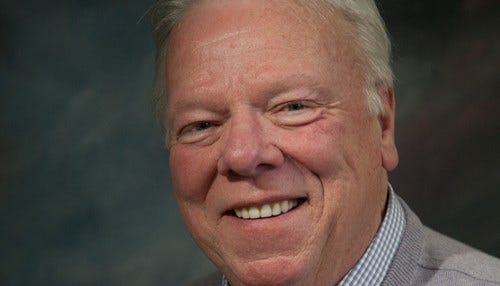Leaving a Legacy

Subscriber Benefit
As a subscriber you can listen to articles at work, in the car, or while you work out. Subscribe NowThe older you get the more you start thinking about what’s important in life, your family and other personal relationships, the memories you’ve made in your home and perhaps some accomplishments at work or in other arenas close to your heart. You wonder how you’ll be remembered after you’re gone.
Throughout history, people have made contributions to hospitals, museums, charities, etc. so they have a legacy, something that continues to benefit society long after their deaths. We often think this is a luxury for the wealthy and certainly, donating a new wing to a library or erecting a monument in the park are endeavors reserved for a privileged few. In reality, legacies are for everyone. They just differ in scope and scale and the smaller ones can be every bit as meaningful as the grand gestures.
Whatever you have of value that you want to share with others is part of your legacy. There are the intangibles, such as your history, values and goals. People choose to make records of these things by various creative means. When it comes to your worldly possessions, however, there are definitive routes to take and solid plans benefit everyone involved.
Legacy planning is the umbrella term that all of your end-of-life affairs fall under. Financial advisors can help, but it often takes services from an attorney, accountant, tax professional and funeral home director as well to be truly comprehensive. You should designate a power of attorney to act on your behalf in the event you cannot make your own decisions. This person will be aware of your wishes and honor them in all matters financial, legal, business or medical. A complete legacy plan would also include funeral arrangements, ideally planned and paid for, but at the very least considered and discussed.
Estate planning is a big piece of the puzzle and often the part many people struggle with. The word “estate” brings to mind grand residences and sprawling properties, but in this context, it simply means “assets” and the formal decisions you make about them while you’re still alive will have a huge impact on how they’ll be transferred upon your death. They can go to your loved ones, charities or churches or they can go to the IRS, probate courts or attorneys.
Let’s start with a will. Lots of people think it’s all they need for peace of mind. It’s certainly necessary, but it’s not enough. A will is a written list of instructions to the probate court detailing where you want your assets to go, but a judge won’t always honor it to the letter. For instance, if you have a life insurance policy that lists a beneficiary, but your will lists someone else, any settlement would go to the person named on the policy.
All of your insurance policies, bank and investment accounts have something called a Payable on Death (POD) or Transfer on Death (TOD) designation that formally names the person for whom your assets are intended. When there is a discrepancy between the will and these designations or when an account simply lists your estate as the beneficiary, a probate judge will make the call and then court and attorneys’ fees will apply. Having your assets properly titled will ensure your beneficiaries will receive them without having to waste money or time. Living trusts hold up in court better or avoid probate altogether, but they’re more expensive to set up and require lifetime management. The arrangement calls for a third party to hold assets on behalf of a beneficiary or allows you to serve as your own trustee and name a successor to take over after your death.
People often ask me how to reduce the tax burden when it comes to passing on their money. IRA accounts can be converted to Roth IRAs, retirement accounts in which you pay the taxes ahead of time to lock in a lower rate. Estate tax is rarely a factor since it’s only triggered when assets reach the $5 million mark. Because the threshold is set so high, it’s something else that can give people the false impression that estate and legacy planning are only for the wealthy. Again, I can’t disagree more. One of my clients once told me about his wife’s brother who made no final preparations and left behind a dozen or so rental properties all titled solely to him. All of them had to go through probate court, where fees can by anywhere from five to ten percent. It was a mess.
Legacy planning is something I take very seriously and started handling as soon as I qualified for AARP. My two daughters are listed as my wife and my successor trustees. Simply put, my family is set up much like a corporation, and when the CEO dies, nothing will happen to the company’s assets or status as a legal entity. None of the planning was particularly easy or pleasant, but it sure makes me feel better knowing the sound choices I make today will continue to have an impact on the people I love the most long after I’m gone.
Bill Demaree is president of Demaree Retirement Services.
